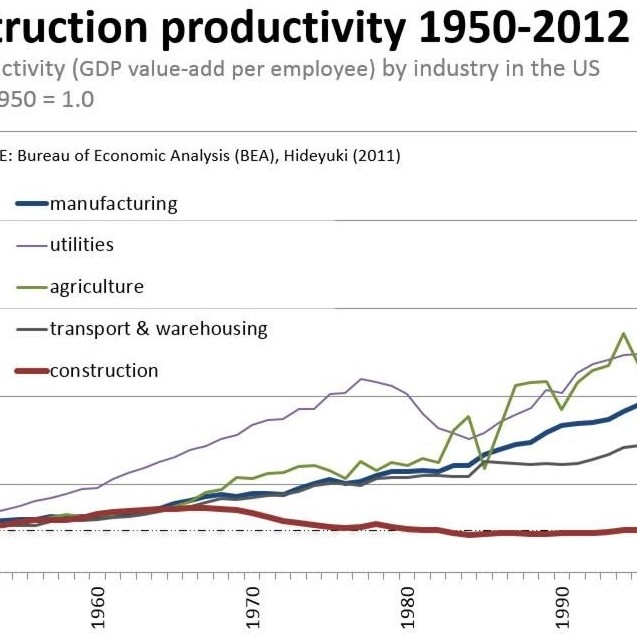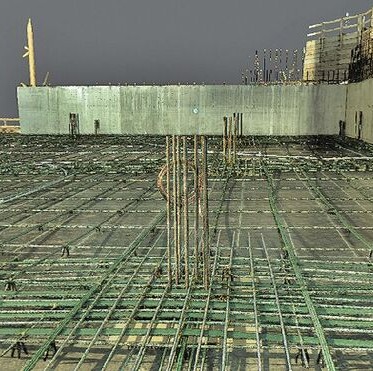There’s been a great buzz around Artificial Intelligence (AI) the past couple of years that penetrated numerous domains. Construction couldn’t stay unaffected; the need to increase efficiency and decrease risk in this trillion-dollar industry is perceived as a good fit for AI-based solutions. Inspired by recent advances in Machine Learning, Computer Vision, Natural Language Processing and other fields, academic and industrial organizations are looking into AI-fying processes such as design optimization, scheduling, documentation, safety and construction project monitoring. However, as with every new trend, there exists misconception around abilities, usage and limitations. AI technology can without doubt empower several processes in the Construction domain; what it can’t do is perform magic.
In this course we will explore these processes and corresponding AI directions in both academia and industry. Through weekly lectures given by prominent researchers, practicing professionals, and entrepreneurs we will critically examine these directions to gain an understanding of how AI can be used to provide solutions in the AEC industry and assess the technology, feasibility and effort. Students will participate actively in discussions, submit triweekly reflection writings and present their own evaluation of existing solutions. We encourage students of all backgrounds to enroll (no AI/Construction background necessary). Artificial Intelligence Applications in the AEC Industry (CEE329) is offered as a 2-unit course for up to 12 graduate students.
CEE329S is a 1-unit seminar, which requires attendance at all lecture and active preparation of and participation in the discussions.
Through this course, students will:
Build knowledge on the potential of using AI to empower construction.
Develop critical thinking to evaluate current AI in construction technologies.
Identify issues in construction that can hinder the development of impactful solutions.
Acquire contacts that can be useful in their academic or industrial aspirations.
Get inspired.
Subscribe to the class Google Calendar
We are offering an info session on Friday April 6th, 10.30 - 11.30AM @Y2E2 Room 292A. See you all there!

This session is an introduction to the class. The speakers will offer their perspective on AI from the theoretical and technological perspective and set the pace for the rest of the discussions.
For more details click here.

In this class we will discuss design optimization.
For more details click here.

This class focuses on construction scheduling.
For more details click here.

In this class we will discuss productivity in construction sites.
For more details click here.
Reflection Writing due

In this class we will focus on robotics in the AEC industry and specifically on doing work that is difficult for humans to do.
For more details click here.
Final Project Update Due

This session is on smart buildings with a focus on comfort.
For more details click here.
Reflection Writing due

The focus is on construction documentation and feedback loops.
For more details click here.

The focus of this session is on energy.
For more details click here.
Reflection Writing due

In this class the students enrolled in CEE329 will present their team projects. Discussion and Closing Notes will follow the presentations.
On AEC: Martin Fischer, Professor, CIFE, Civil and Environmental Engineering, Stanford University
On AI: Iro Armeni, PhD Candidate, CIFE/AI Lab, Stanford University
On AEC: Glenn Katz, Lecturer, Civil and Environmental Engineering, Stanford University
On AI: Filippo Ranalli, PhD Candidate, CIFE, Stanford University
On AEC: Kevin Britt, Planning, Scheduling and Production Planning, DPR
On AI: Henning Roedel, ALICE Technologies
On AEC: Mark LaBell Jr, SR VDC Technical Leader, SSOE
On AI: Silvio Savarese, Professor, AI Lab, Stanford University
On AEC: Roberto Charron, Practice Expert on IPD and Lean Construction, McKinsey & Company
On AI: Robin Singh, CTO - Cofounder, Doxel
On AEC: Atul Khanzode, Director for Technology and Innovation, DPR
On AI: Oussama Khatib, Professor, AI Lab, Stanford University
On AEC: Din Catic, Business Development team, Global Centre of Competence for Cities, Siemens Corporation, London, UK
On AI: Renate Fruchter, Director of PBL, Civil and Environmental Eng. Dept., Stanford University
On AEC: Gerry Hamilton, Associate Director, Facilities Energy Management, Stanford University
On AI: Ram Rajagopal, Associate Professor, Civil & Env. Eng., Stanford University
Students will be evaluated based on the following assignments. Late assignments will be marked down 25% per day late, with zero credit if more than two days late. All assignments are required to be submitted except if prior arrangement with the instructors.
Students will be evaluated based on the following criteria.
Units: 2 (CEE329), 1 (CEE329S)
Grading Criteria: Letter Grade (CEE329), Pass/No Credit (CEE329S)
Enrollment Cap: 12 students (CEE329), unlimited (CEE329S)
Readings: There are no textbooks required. Any readings will be posted on the course website.
Martin Fischer, Y2E2 297, By appointment
Iro Armeni, Gates 259, Mondays, 3-4PM
Attendance is required at all sessions unless there is an excused absence, which requires prior notification and approval from the instructor. Students are not allowed to miss more than one sessions. Regardless of any missed sessions, students are required to submit coursework on time.
Students may submit a regrade request within 3 days after the grades are released, if they think they deserved a better grade on an assignment. The request should briefly summarize why the student think the original grade was unfair. We will reevaluate your assignment as soon as possible, and issue a decision.
Students who may need an academic accommodation based on the impact of a disability must initiate the request with the Office of Accessible Education (OAE). Professional staff will evaluate the request with required documentation, recommend reasonable accommodations, and prepare an Accommodation Letter for faculty dated in the current quarter in which the request is being made. Students should contact the OAE as soon as possible since timely notice is needed to coordinate accommodations. The OAE is located at 563 Salvatierra Walk (phone: 723-1066, URL: http://studentaffairs.stanford.edu/oae).
Students are expected to adhere to Stanford’s Honor Code and are responsible for understanding the University rules regarding academic integrity. In brief, conduct prohibited by the Honor Code includes all forms of academic dishonesty, among them copying from another’s exam, unpermitted collaboration, and representing another’s work as one’s own. To view the honor code and receive tips for how to adhere to it, visit: http://studentaffairs.stanford.edu/communitystandards